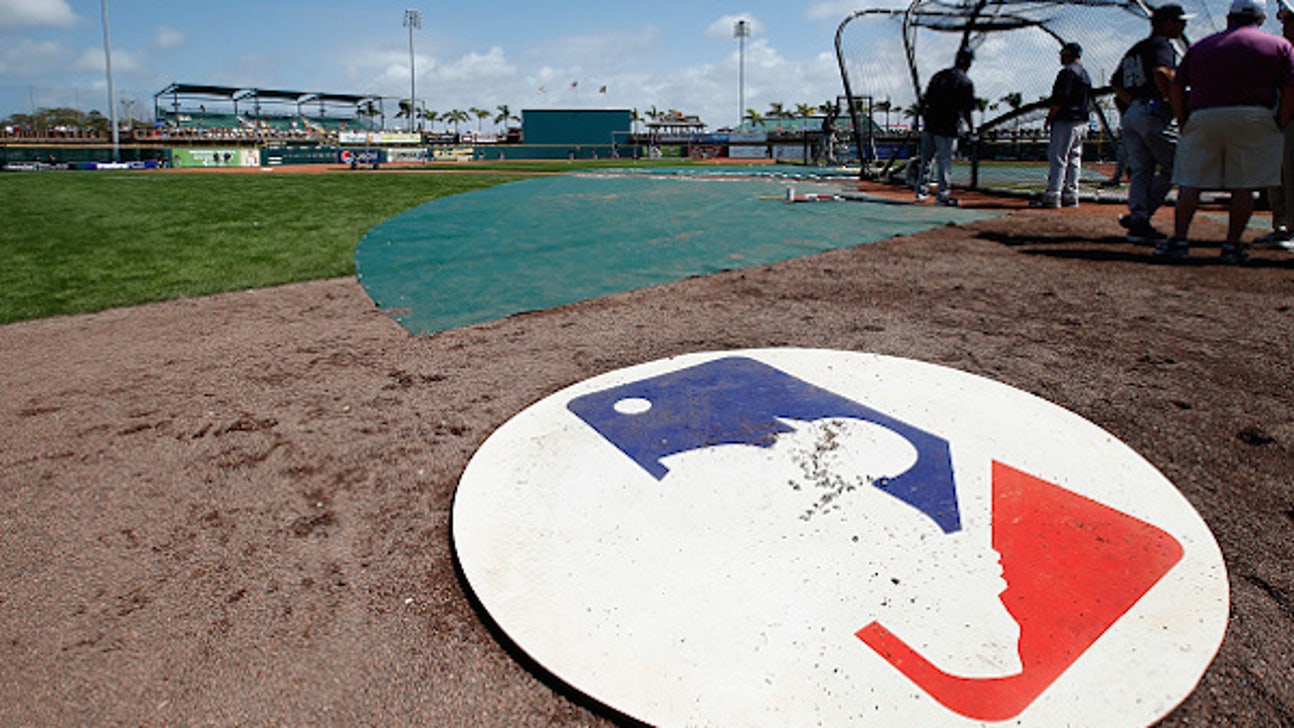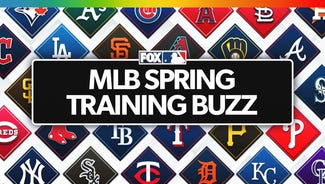
MLB scout hiring and pay practices challenged in lawsuit

By Nathaniel Grow
MLB’s pay practices have come under considerable scrutiny in recent years. In 2013 and 2014, the U.S. Department of Labor launched a series of investigations examining whether several MLB teams violated the federal Fair Labor Standards Act (FLSA) by failing to pay their clubhouse attendants, administrative workers, and interns in accordance with the FLSA’s minimum wage and overtime requirements.
At the same time, MLB has also been hit with four different lawsuits over the last two years alleging that the league’s pay practices violate the FLSA and/or federal antitrust law. The most notable of these cases were two suits filed last year contending that MLB teams routinely fail to pay their minor-league players either the minimum wage or overtime. Those cases – which assert that minor leaguers often earn as little as $3,300 per year – currently remain pending against 22 MLB teams.
Now, yet another group of MLB employees is coming forward to challenge MLB’s pay practices. In a new class action lawsuit filed last week in New York federal court, former Kansas City Royals scout Jordan Wyckoff contends that MLB teams have unlawfully agreed not to compete with one another for the services of their amateur and professional scouts. As a result, the suit – Wyckoff v. Office of the Commissioner of Baseball – asserts that a number of MLB scouts currently make less than the minimum wage and are not paid overtime, even when working more than 40 hours in a given week.
Wyckoff alleges that these practices not only violate the FLSA, but that they fail to comply with both federal and state antitrust law as well.
Wyckoff’s complaint (available here) begins by accusing MLB and its teams of forming an illegal conspiracy to decrease the competition for scouts. In particular, the lawsuit contends that MLB prevents its teams from negotiating with or hiring away any scout currently under contract with another franchise, unless that team has expressly granted the scout permission to talk with other clubs. Wyckoff asserts that teams will typically only grant permission in cases where the new franchise would be giving the scout a promotion (such as by hiring another team’s area scout as one of its cross-checkers), and alleges that even then teams have been known to fire a scout simply for requesting permission to talk to another club.
Similarly, the lawsuit also notes that whenever a high-level executive is hired away from one franchise by another — such as when the Padres hired A.J. Preller from Texas last year — the two teams will often agree that the departing executive will not bring other employees (including scouts) with him from his former employer.
Wyckoff’s suit alleges that these different agreements violate antitrust law. Specifically, by allegedly agreeing not to fully compete with each other for scouts, teams have artificially depressed the market for their services. Wyckoff contends that but for these allegedly illegal agreements between MLB franchises, teams would frequently hire scouts away from one another, competition that would result in higher wages and better benefits for the employees.
Wyckoff’s lawsuit asserts that the lack of competition has instead allowed teams to pay many of their scouts less than the minimum wage. For example, Wyckoff states that when he was hired as a part-time scout by the Royals in 2013, he received a salary of $15,000 per year. Despite his “part-time” status, he says he was nevertheless frequently expected to work 50-60 hours per week traveling to games, evaluating prospects, and drafting reports. Consequently, he claims that he often effectively received only around $5 per hour for his services, and never received overtime when working more than 40 hours in a week. Both practices, he asserts, violated the FLSA.
Interestingly, among the attorneys representing Wyckoff is Garrett Broshuis, the former minor-league pitcher turned lawyer who filed the first of the minor-league wage lawsuits — Senne v. Office of the Commissioner of Baseball — against MLB in California last year. Despite this common representation, however, there are a few notable differences between the Wyckoff case and the earlier suits filed on behalf of minor-league players.
First, unlike the Senne minor-league lawsuit — which only accuses MLB of violating the minimum wage and overtime laws — Wyckoff’s case also asserts antitrust claims against MLB. Wyckoff’s attorneys likely believe that the New York court will be more receptive to these claims than its counterpart in California would have been had they been asserted in the Senne litigation. Indeed, while courts in California have traditionally granted MLB broad immunity under its antitrust exemption, New York courts have adopted a relatively narrow view of the exemption, finding that it did not apply to antitrust lawsuits regarding MLB’s employment of umpires, or — more recently — its television broadcasting practices.
Whether the New York court will be willing to take a similarly narrow view of baseball’s antitrust exemption in the Wyckoff case remains to be seen. MLB will almost certainly argue that the exemption does apply, and that Wyckoff’s antitrust claims must therefore be dismissed. But considering the favorable New York precedent on the issue, it would not be surprising if Wyckoff is able to persuade the judge to set aside the exemption and allow him to move forward with his claims under antitrust law.
A second potentially significant difference between the Wyckoff case and the earlier Senne minor-league suit involves the specific minimum-wage laws that MLB is accused of violating. Unlike the minor-league lawsuit — which claims that MLB’s pay practices violate state-level minimum-wage laws in addition to the FLSA — the Wyckoff case only accuses MLB of violating the federal minimum wage and overtime law. It’s not immediately clear why Wyckoff’s attorneys opted to rely only on the FLSA, instead of asserting claims under state law as well.
As a result, this difference could make it easier for MLB to persuade the court to eventually dismiss the minimum wage portion of Wyckoff’s suit. In the minor-league wage lawsuits, MLB has argued that it is exempt from the FLSA because its teams are covered by an exception under the law for seasonal amusement or recreational establishments. Federal courts are currently divided regarding whether this exception applies to professional sports teams.
If the New York court determines that MLB is exempt from the FLSA, then Wyckoff would be unable to proceed against the league for its alleged violations of the minimum wage. Conversely, even if the court in the minor-league lawsuits were to conclude that MLB was not subject to the FLSA, the plaintiffs in those cases would still be able to proceed against the league under various state-level minimum-wage protections, which do not always include an analogous exception for seasonal recreational establishments.
In addition to its potential antitrust and FLSA exemptions, MLB is also likely to defend itself from the scouts’ suit on other grounds as well. For instance, as in the minor-league-wage lawsuits, some MLB teams will likely argue that they do not maintain any significant business operations in New York, and therefore are not subject to the New York court’s jurisdiction.
More substantively, MLB will likely deny that its teams have entered into any sort of express or tacit agreement not to hire away each others’ scouts. Instead, MLB may argue that the apparent lack of competition is simply due to the inherent difficulty in appraising another organization’s scouts, especially those scouting at the amateur level. Not only do teams lack access to one another’s scouting reports, but it will usually take three to four years to determine how accurate a particular scout’s evaluation of amateur players turned out to be. This dynamic will naturally decrease the level of competition between teams for scouts, especially those working at the entry levels of the profession.
Even then, however, this argument would only help rebut Wyckoff’s antitrust claims, and not his allegations under the FLSA. If the court rejects MLB’s argument that it is immune from the FLSA as a seasonal recreational employer, then Wyckoff’s minimum-wage claims may prove more difficult for the league to defeat.
MLB will likely argue that scouts are not entitled to receive the minimum wage or overtime under an FLSA exception for employees working in an “executive, administrative or professional capacity.” MLB asserted this defense in the minor-league lawsuits, for instance. Whether scouts would be covered by this exception, however, is unclear. Courts have typically held that the exception only applies to those working in either some sort of managerial or supervisory role, or in a position that requires “a prolonged course of specialized intellectual instruction.”
Moreover, in order to qualify for this exception, an employee must make a minimum of $455 per week – or roughly $23,600 per year – which is more than Wyckoff alleges he was paid during his year working for the Royals. Ultimately, then, while MLB may be able to successfully persuade the court that some of its scouts are excluded from the FLSA under this exception, the defense is unlikely to defeat Wyckoff’s minimum-wage claims in their entirety.
Nevertheless, the Wyckoff suit likely presents less of a threat to MLB than do the minor-league-wage lawsuits. For one thing, there appear to be many more current and former minor-league players than MLB scouts. Indeed, whereas the Senne suit estimates that there are approximately 6,000 minor leaguers working for MLB teams, the Wyckoff case suggests that these same teams only employ around 1,000 scouts.
Moreover, because many of the affected scouts are still employed by MLB teams, they may be hesitant to affirmatively opt-in to the Wyckoff suit in order to receive compensation for MLB’s alleged violations of the minimum wage and overtime laws. This means that the number of plaintiffs covered by the Wyckoff case is likely to be substantially smaller than in the minor-league cases, reducing the potential amount of damages MLB could be forced to pay.
That having been said, the Wyckoff case is still one that MLB should not take lightly – especially if the court allows the scouts to proceed with their antitrust claims against the league (in which case, any damages would be tripled under the Sherman Act). Perhaps more importantly, though, the suit illustrates the extent to which MLB’s current pay practices allegedly continue to violate the minimum wage and overtime laws, highlighting yet another category of employee who may often find themselves overworked and underpaid by MLB.
More from Fangraphs:










